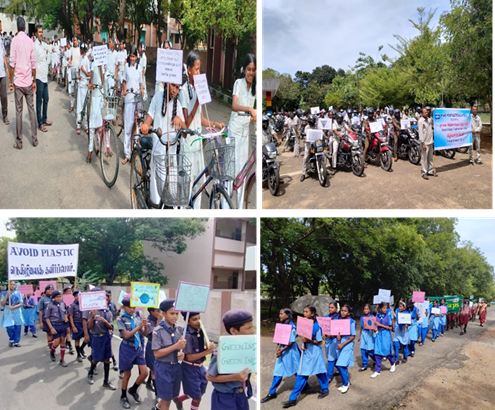In a significant stride towards efficiency and cleanliness, the Department of Higher Education, under the Ministry of Education, embarked on a Special Campaign for Disposal of Pending Matters (SCDPM) from December 2022 to August 2023. This initiative aimed to reduce the backlog of pending matters, strengthen internal monitoring, and promote cleanliness within the ministry and Higher Educational Institutions (HEIs) across India.
The results achieved during this period are nothing short of commendable:
Public Grievances (PG) Receipts and Disposal: An astounding 95.71% of public grievances, totaling 26,417 out of 27,600 receipts, were successfully resolved. This demonstrates the ministry’s commitment to addressing the concerns of the public promptly.
References from MPs: The department disposed of 75.10% of references received from Members of Parliament (MPs), addressing 350 out of 466 received. This reflects their dedication to parliamentary accountability and responsiveness.
Parliamentary Assurance: Out of 79 Parliamentary Assurances, 47 were addressed, marking a significant 59.50% disposal rate. This underlines the ministry’s dedication to fulfilling its commitments to Parliament.
PG Appeals: A remarkable 90.50% of Public Grievance appeals were disposed of, resolving 5,962 out of 6,588 receipts. This highlights the commitment to ensuring that grievances are not only heard but also effectively resolved.
File Weeding: The department achieved an impressive 79.87% disposal rate for files identified for weeding, with 6,652 files out of 8,329 being cleared. This proactive approach to record management improves efficiency and streamlines processes.
Cleanliness Campaign: The ministry extended its efforts beyond paperwork, conducting a cleanliness campaign in 189 Higher Educational Institutions. This initiative promotes a clean and healthy environment in HEIs.
The primary objectives of the campaign were not limited to reducing pendency. The ministry aimed to institutionalize cleanliness (Swachhata) in its premises and HEIs, strengthen internal monitoring mechanisms, provide training in records management, digitize physical records for improved accessibility, and facilitate the integration of all ministries and departments onto a single digital platform.
Additionally, significant steps have been taken within the Shastri Bhawan in New Delhi, which houses a cluster of ministries and departments. To address the issue of clutter in corridors and lift lobbies caused by abandoned furniture and fixtures, a centralized dump yard with an enclosure was established. This proactive move ensures that waste is transported and disposed of as per established procedures, freeing up space and reducing fire hazards. Furthermore, there are plans to establish a recycling unit within the premises, contributing to sustainability efforts.
The Ministry of Education’s SCDPM is a testament to its commitment to transparency, efficiency, and cleanliness in governance. These achievements not only reflect a reduction in pending matters but also signify a step forward in ensuring a more accountable and responsive government. By focusing on both digital transformation and physical cleanliness, the ministry is setting an example for other government departments and institutions to follow, ultimately contributing to a cleaner, more efficient, and responsive government system in India.










